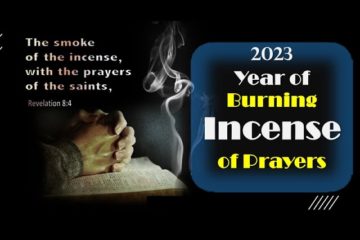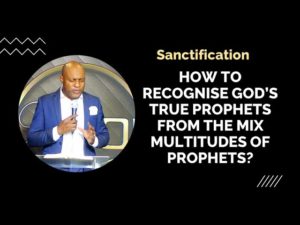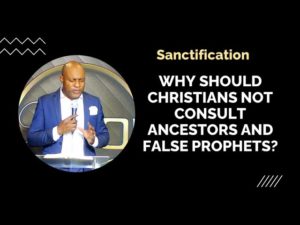For over thirty years I have studied the Scriptures in an attempt to formulate a satisfying biblical answer to the question, “Why should I believe in a pretribulational rapture?”
The following four questions will be raised and answered in this attempt to answer the ultimate question at hand, “Why a pretribulational rapture?”
- What does “rapture” mean?
- Will there be an eschatological “rapture”?
- Will the “rapture” be partial or full?
- Will the “rapture” be pre-, mid-, or post- Daniel’s seventieth week?
The central purpose of this article is not to unveil the chief deficiencies of opposing stances, but to describe the superiority of pretribulationism as taught in major eschatological texts such as Matthew 24–25; 1 Thessalonians 4; 1 Corinthians 15; and Revelation 3, 6–18. It is not the weight of a single reason that makes pretribulationism so compelling, but instead the combined force of all the lines of reasoning.
What Does “Rapture” Mean?
The English noun/verb “rapture” comes from the Latin noun raptura/verb rapio that is used 14 times in the NT. The basic idea of the word is “to remove suddenly or snatch away.” It is used in the NT in reference to stealing/plundering (Matt. 11:12; 12:29; 13:19; John 10:12, 28, 29) and removing (John 6:15; Acts 8:39; 23:10; Jude 23).There is a third use, which focuses on being caught up to heaven. It is used of Paul’s third heaven experience (2 Cor. 12:2, 4) and Christ’s ascension to heaven.
Obviously, this is the perfect word to describe God suddenly taking up the church from earth to heaven as the first part of Christ’s second coming. However, the term itself contains no hint as to its time in relationship to Daniel’s seventieth week.
Will There Be an Eschatological “Rapture”?
First Thessalonians 4:16–17 unquestionably refers to a rapture that is eschatological in nature. Hence, harpazo is translated “caught up”:
For the Lord Himself will descend from heaven with a shout, with the voice of the archangel, and with the trumpet of God; and the dead in Christ shall rise first. Then we who are alive and remain shall be caught up together with them in the clouds to meet the Lord in the air, and thus we shall always be with the Lord. (NASB, italics mine)
Without employing harpazo, but by using similar contextual language, 1 Corinthians 15:51–52 refers to the same eschatological event as 1 Thessalonians 4:16–17: “Behold, I tell you a mystery; we shall not all sleep, but we shall all be changed, in a moment, in the twinkling of an eye, at the last trumpet; for the trumpet will sound, and the dead will be raised imperishable, and we shall be changed.”
Thus, it can be concluded that Scripture points to an eschatological rapture, even though neither of these foundational texts contains a time indicator.
Will the “Rapture” Be Partial or Full?
Some have suggested that the rapture spoken of in 1 Thessalonians 4:16–17 and 1 Corinthians 15:51–52 will only be a “partial” rapture, not a rapture of all who believe. Advocates reason that participation in the rapture is not based upon one’s salvation, but is instead conditional, dependent upon one’s deserving conduct.
This theory rests on NT passages that stress obedient watching and waiting (e.g., Matt. 25:1–13; 1 Thess. 5:4–8; Heb. 9:28). If this interpretation is correct, the result would be that only part of the church would be raptured, and those who are not raptured would endure a portion of or the entire seventieth week of Daniel. However, these biblical texts which supposedly teach a partial rapture are better understood as differentiating between true believers who are raptured and merely professing, yet false believers who remain behind. Texts that refer to the final aspect of Christ’s second coming are often used mistakenly to support the partial-rapture theory.
There are numerous reasons the partial rapture theory fails to be convincing. First, 1 Corinthians 15:51 says that “all” will be changed. Second, a partial rapture would logically demand a parallel partial resurrection, which is nowhere taught in Scripture. Third, a partial rapture would minimize and possibly eliminate the need for the judgment seat of Christ, because judgment would have already taken place by virtue of a “partial” rapture. Fourth, it creates a purgatory of sorts on earth for those believers left behind. Fifth, a partial rapture is nowhere explicitly taught in Scripture. Therefore, it is best concluded that the rapture will be full and complete, not just partial.
Will the “Rapture” Be Pre-, Mid-, or Post-Daniel’s Seventieth Week?
The following seven evidences point to a pretribulational rapture. In this writer’s opinion, they create a far more compelling case than the reasoning given for any other time of the rapture.
1. The Church Is Not Mentioned in Revelation 6–18 as Being on Earth
The common NT term for “church” (ekklesia) is used 19 times in Revelation 1–3, a section that deals with the historical church of the first century toward the end of the apostle John’s life (ca. AD 95). However, “church” is then used only once more in the twenty-two chapter book, and that use is at the very end (22:16) when John returns to addressing the first-century church. Most interesting is the fact that nowhere during the period of Daniel’s seventieth week is the term for “church” used for believers on earth (cf. Rev. 4–19).
It is unexpected that John would shift from detailed instructions for the church to complete silence about the church in the subsequent 13 chapters if, in fact, the church did continue into the tribulation. If the church will experience the tribulation of Daniel’s seventieth week, then surely the most detailed study of tribulation events would include an account of the church’s role—but it does not. The only timing of the rapture that would account for this frequent mention of “church” in Revelation 1–3 and the total absence of the “church” on earth until Revelation 22:16 is a pretribulational rapture which will relocate the church from earth to heaven prior to Daniel’s seventieth week.
Looking at this observation from another perspective, it is also true that nowhere in Scripture is it taught that the church and Israel would coexist as the centers for God’s redemptive message and yet remain mutually exclusive.
Today, the church universal is God’s human channel of redemptive truth. Revelation gives indications that the Jewish remnant will be God’s human instrument during Daniel’s seventieth week. The narrative abruptly shifts from the “church” in Revelation 2–3 to the 144,000 Jews from the twelve tribes in Revelation 7 and 14. Readers must ask, “Why?”
Further, because Revelation 12 is a mini-synopsis of the entire tribulation period and because the woman who gave birth to the male child (Rev. 12:1–13) is Israel, then the Tribulation period focuses on the nation of Israel, not the church. How could this be? Because a pretribulational rapture has removed the “church” from the earth prior to Daniel’s seventieth week.
2. The Rapture Is Rendered Inconsequential if it is Posttribulational
First, if God miraculously preserves the church through the tribulation, why have a rapture? If it is to avoid the wrath of God at Armageddon, then why would God not continue to protect the saints on earth (as is postulated by posttribulationism) just as He protected Israel (see Exod. 8:22; 9:4, 26; 10:23; 11:7) from the wrath He poured out on Pharaoh and Egypt. Further, if the purpose of the rapture is for living saints to avoid Armageddon, why also resurrect the saints who are already immune at the same time?
Second, if the rapture will take place in connection with the Lord’s posttribulational coming, the subsequent separation of the sheep from the goats (see Matt. 25:31 ff.) will be redundant. Separation will have taken place in the very act of translation.
Third, if all tribulation believers are raptured and glorified just prior to the inauguration of the millennial Kingdom, who then will populate and propagate the Kingdom? The Scriptures indicate that the living unbelievers will be judged at the end of the tribulation and removed from the earth (see Matt. 13:41–42; 25:41). Yet, they also teach that children will be born to believers during the millennium and that these children will be capable of sin (see Isa. 65:20; Rev 20:7–10). This will not be possible if all believers on earth have been glorified through a posttribulational rapture.
Fourth, the posttribulational paradigm of the church being raptured and then immediately brought back to earth leaves no time for the Bema, i.e., the Judgment Seat of Christ to occur (1 Cor. 3:10–15; 2 Cor. 5:10), nor for the Marriage Supper (Rev. 19:6–10). Thus, it can be concluded that a posttribulational time of the rapture is incongruous with the sheep-goat nation judgment, and, in fact, eliminates two critical end-time events. A pretribulational rapture avoids all of these difficulties.
3. The Epistles Contain No Preparatory Warnings of an Impending Tribulation for Church-Age Believers
God’s instructions to the church through the epistles contain a variety of warnings, but never do they warn believers to prepare for entering and enduring the tribulation of Daniel’s seventieth week.
They warn vigorously about coming error and false prophets (see Acts 20:29–30; 2 Pet. 2:1; 1 John 4:1–3; Jude 4). They warn against ungodly living (see Eph. 4:25–5:7; 1 Thess. 4:3-8; Heb. 12:1). They even admonish believers to endure in the midst of present tribulation (see 1 Thess. 2:13–14; 2 Thess. 1:4; 1 Peter). However, there is absolute silence on preparing the church for any kind of tribulation like that found in Revelation 6–18.
It is incongruous, then, that the Scriptures would be silent about such a traumatic change for the church. If any time of the rapture other than pretribulational were true, one would expect the epistles to teach the reality of the church in the tribulation, the purpose of the church in the tribulation, and the conduct of the church in the tribulation. However, there is no teaching whatsoever. Only a pretribulational rapture satisfactorily explains this silence.
4. First Thessalonians 4:13–18 Demands a Pretribulational Rapture
Suppose, hypothetically, that some other rapture timing besides pretribulational is true. What would one expect to find in 1 Thessalonians 4? How does this compare with what is actually observed?
First, one would expect the Thessalonians to be joyous over the fact that loved ones are home with the Lord and will not have to endure the horrors of the tribulation. But the Thessalonians are actually grieving because they fear their loved ones have missed the rapture. Only a pretribulational rapture accounts for this grief.
Second, one would expect the Thessalonians to be grieving over their own impending trial rather than grieving over loved ones. Furthermore, they would be inquisitive about their own future doom. But the Thessalonians have no fears or questions about the coming tribulation.
Third, one would expect Paul, even in the absence of interest or questions by the Thessalonians, to have provided instructions and exhortation for such a supreme test, which would make their present tribulation seem microscopic in comparison. But not one indication of any impending tribulation of this sort appears in the text.
First Thessalonians 4 fits only the model of a pretribulational rapture. It is incompatible with any other time for the rapture.























